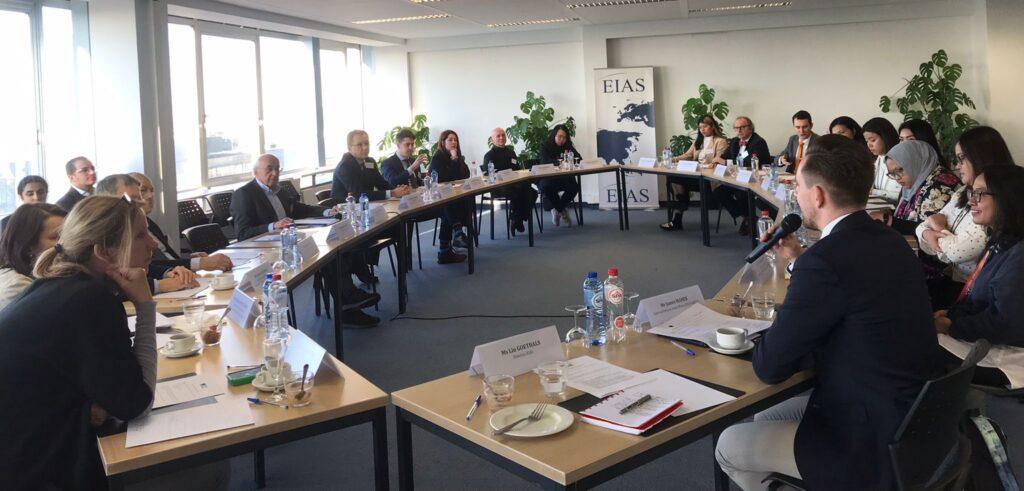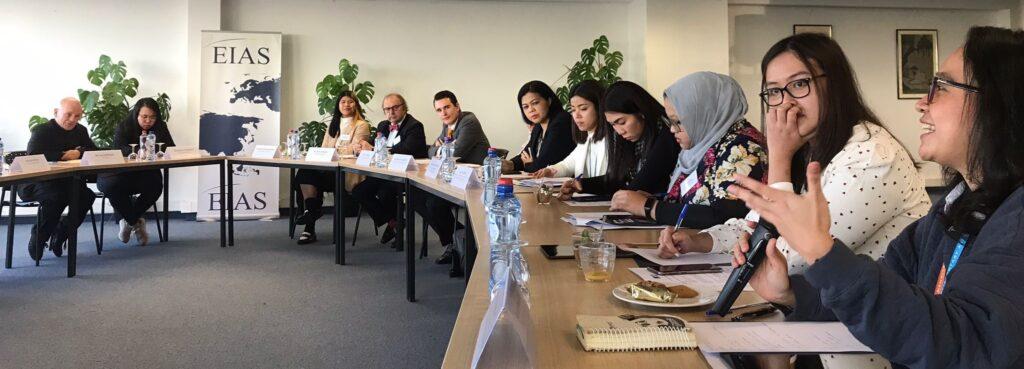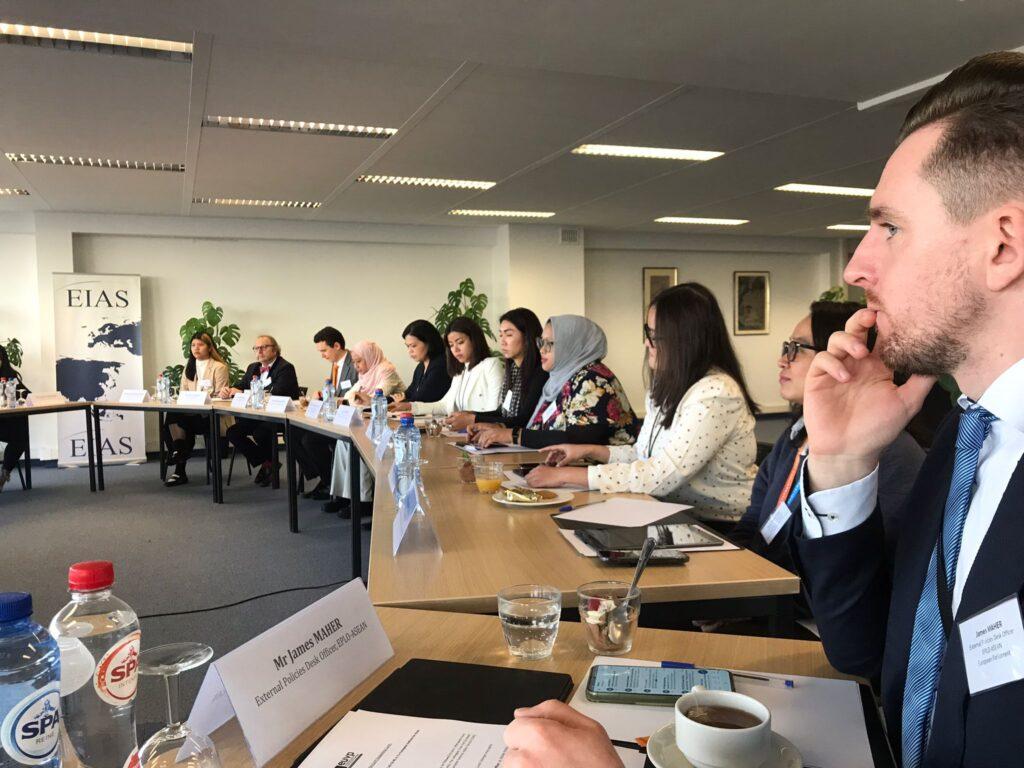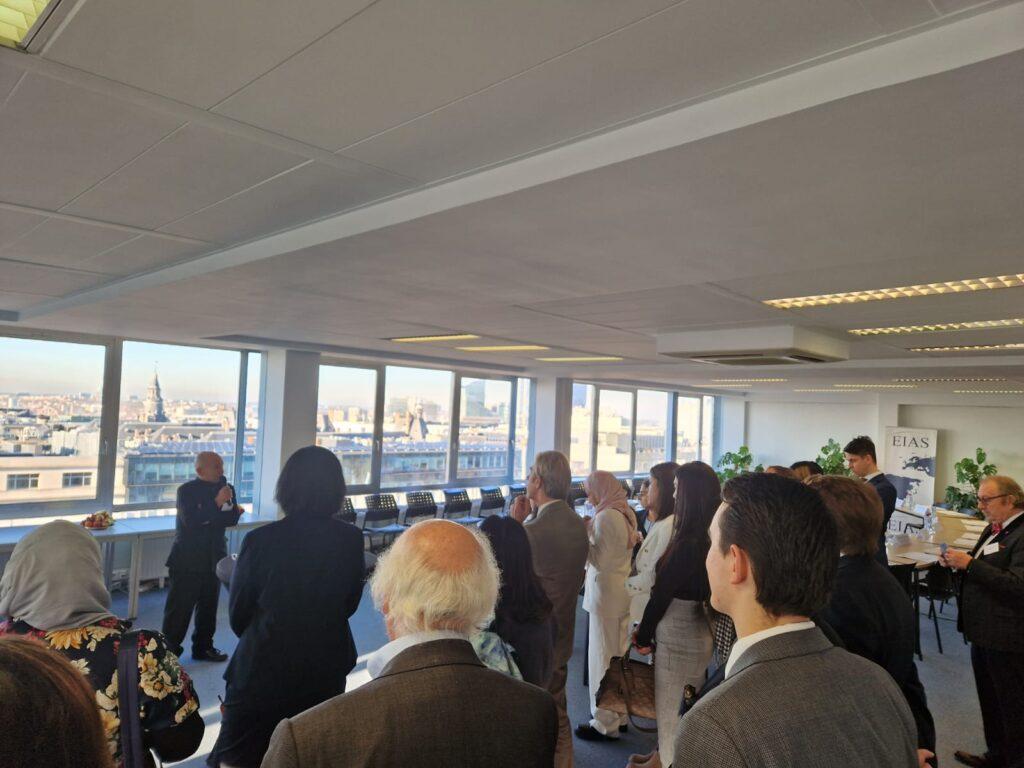The Lunch meeting and Discussion took place two days before the EU-ASEAN Commemorative Summit, held on 14 December 2022 and included delegates from Indonesia, Malaysia, Cambodia and Lao PDR. As expectations for the EU-ASEAN Summit were high, deliverables such as the Partnership and Cooperation Agreements with Thailand and Malaysia were much anticipated, as well as to advance the EU-ASEAN partnership and cooperation in the Indo-Pacific, also in view of cyber security and the fight against disinformation.
Celebrating 45 years of diplomatic relations, the EU and ASEAN have extended their cooperation in a plethora of fields, including sustainability and green policies, trade and infrastructure. Yet, some challenges remain in place. The matter of a potential inter-bloc Free Trade Agreement (FTA) has been thoroughly explored and still surfaces as the eventual objective. To reach such an agreement will nevertheless take time and a set of hindrances to be overcome, not in the least requiring the political willingness to conclude the accord, especially given the diverging points of view between the two blocs on how to conclude such a trade deal.
In its foreign policy the EU increasingly focuses on values, whereas for ASEAN the principle of non-interference prevails. However, values and cooperation are not mutually exclusive and can take place without having to interfere. The EU often focuses on how ASEAN can act as “one front”, while the ASEAN delegates emphasised the EU’s discourse on “values”, which differs significantly from the meaning ASEAN has attached to it.
Overall, the EU’s presence in the region remains low compared to other major partners of the Southeast Asian nations and the EU was rather late in establishing its Strategic Partnership with ASEAN in 2020, which has already evolved towards Comprehensive strategic partnership with other actors in the region. Yet, the EU is open to move towards a comprehensive strategic partnership in the future, while up to now their cooperation has already led to some concrete results such as the Comprehensive Air Transport Agreement (CATA), trade and investment agreements and cooperation, as well as concrete projects under the Global Gateway Initiative, which can be directly linked to the Master Plan on ASEAN Connectivity 2025.
How can the EU become a more engaged partner in the region, strengthening EU-ASEAN Parliamentary cooperation? The discussion further identified a mutual understanding of concerns and challenges for the EU and ASEAN to be tackled jointly. A discussion certainly to be continued in the future.





